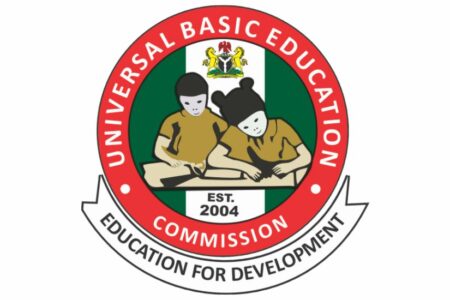The Universal Basic Education Commission (UBEC) has unveiled plans to educate and economically empower one million underserved Nigerian girls through the Learning, Uniting, Modernising, Innovating, Nurturing, Accelerating, and Harmonising (LUMINAH) 2030 initiative.
At the opening of a five-day program on the LUMINAH 2030 UBEC Migration and Establishment Agenda in Abuja, UBEC Executive Secretary, Aisha Garba, explained that the commission’s formal takeover of the initiative from the Federal Ministry of Education was an essential step to ensure sustainability and long-term impact. Represented by the Deputy Executive Secretary (Technical), Razak Akinyemi, she described the initiative as one that combines education, skills training, caregiver support, and community engagement to tackle the barriers that have long kept girls out of school.
Initially nurtured by the Adolescent Girls Initiative for Learning and Empowerment (AGILE), LUMINAH 2030 has now been embedded within UBEC to guarantee institutionalisation and alignment with Nigeria’s education transformation roadmap. Garba stressed that the vision is to deliver an inclusive and data-driven model that directly reaches the most marginalised girls while creating a lasting legacy.
More than just an education project, the initiative is designed to link schooling with practical skills training and economic participation. This means that underserved girls will not only have the opportunity to stay in classrooms but also be equipped with tools that prepare them for entrepreneurship, vocational pursuits, and employment. For Nigeria’s Micro, Small, and Medium Enterprises (MSMEs), this represents the creation of a pipeline of young women ready to contribute to small businesses across sectors such as agriculture, fashion, retail, and technology.
Across Africa, women-led MSMEs already account for a significant share of local trade and innovation. By strengthening the capacity of girls today, LUMINAH 2030 is laying the foundation for tomorrow’s entrepreneurs and community leaders. It is an investment that speaks to opportunity, empowerment, and sustainable growth.
Garba also reaffirmed UBEC’s commitment to working closely with state governments, civil society, the private sector, and local communities to achieve the initiative’s goals. She emphasised the importance of accountability and measurable results, noting that the migration process should not be treated as a formality but as a transformational moment with real impact.
For Nigeria’s MSME ecosystem, LUMINAH 2030 is more than a policy it is a promise of empowerment. By preparing a new generation of women who are educated, skilled, and economically active, the initiative is shaping a future where opportunity meets enterprise and where small businesses continue to drive national progress.










